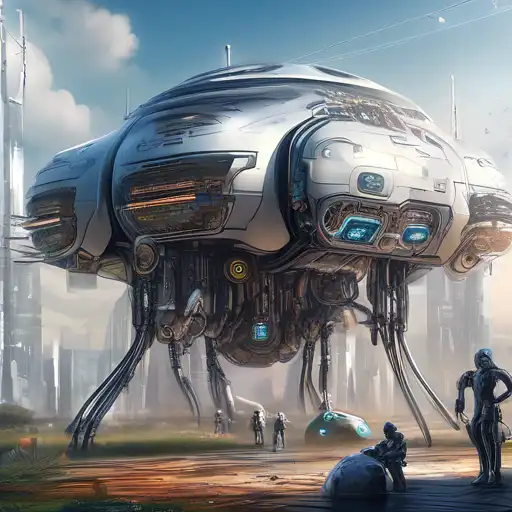Introduction to Artificial Intelligence's Evolution
Artificial Intelligence (AI) has transitioned from a futuristic concept to a cornerstone of modern technology. Today, AI's trajectory is not just about innovation but reshaping how we live, work, and interact. This article delves into the current state of AI, exploring its potential to redefine industries and everyday life.
The Current Landscape of AI
The realm of AI is vast, encompassing machine learning, natural language processing, robotics, and more. Companies and researchers are pushing boundaries, creating systems that learn, adapt, and potentially outthink human capabilities. From AI in healthcare to autonomous vehicles, the applications are limitless.
Key Trends Shaping AI's Future
- Autonomous Systems: Self-learning algorithms are becoming more prevalent, enabling machines to perform complex tasks without human intervention.
- AI Ethics and Governance: As AI systems become more integrated into society, the need for ethical guidelines and governance frameworks has never been more critical.
- Quantum Computing: The intersection of AI and quantum computing promises to unlock new potentials in processing power and problem-solving capabilities.
- Personalization at Scale: AI is enabling hyper-personalized experiences in marketing, entertainment, and education, tailored to individual preferences and behaviors.
Challenges and Opportunities
While AI presents unprecedented opportunities, it also brings challenges such as job displacement, privacy concerns, and the risk of biased algorithms. Addressing these issues requires a collaborative approach among technologists, policymakers, and the public.
AI in Everyday Life
From smart assistants to recommendation systems, AI is becoming an invisible yet integral part of our daily routines. Its ability to analyze vast amounts of data in real-time is transforming how we make decisions, from what to buy to how to manage our health.
Looking Ahead: The Future of AI
The future of AI is not just about technological advancements but how humanity chooses to integrate these tools into society. With ongoing research and development, AI has the potential to solve some of the world's most pressing problems, including climate change, healthcare, and education.
As we stand on the brink of this new era, it's clear that AI will continue to evolve, bringing both challenges and opportunities. The key to harnessing its full potential lies in responsible innovation and inclusive governance.
